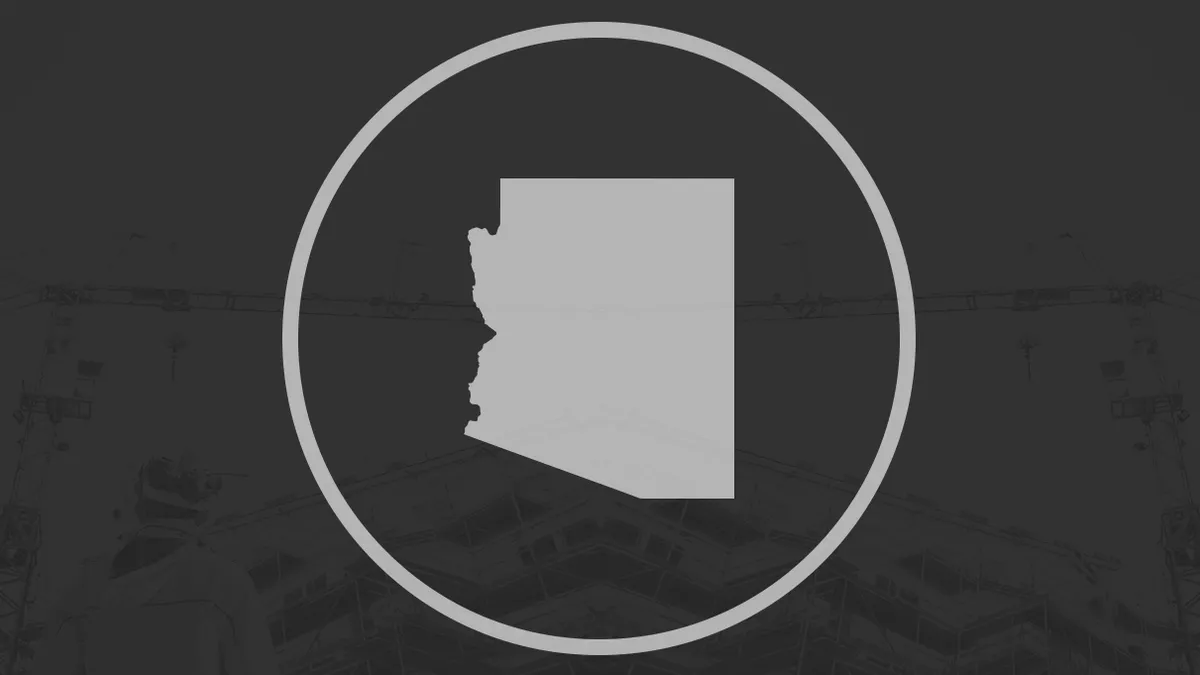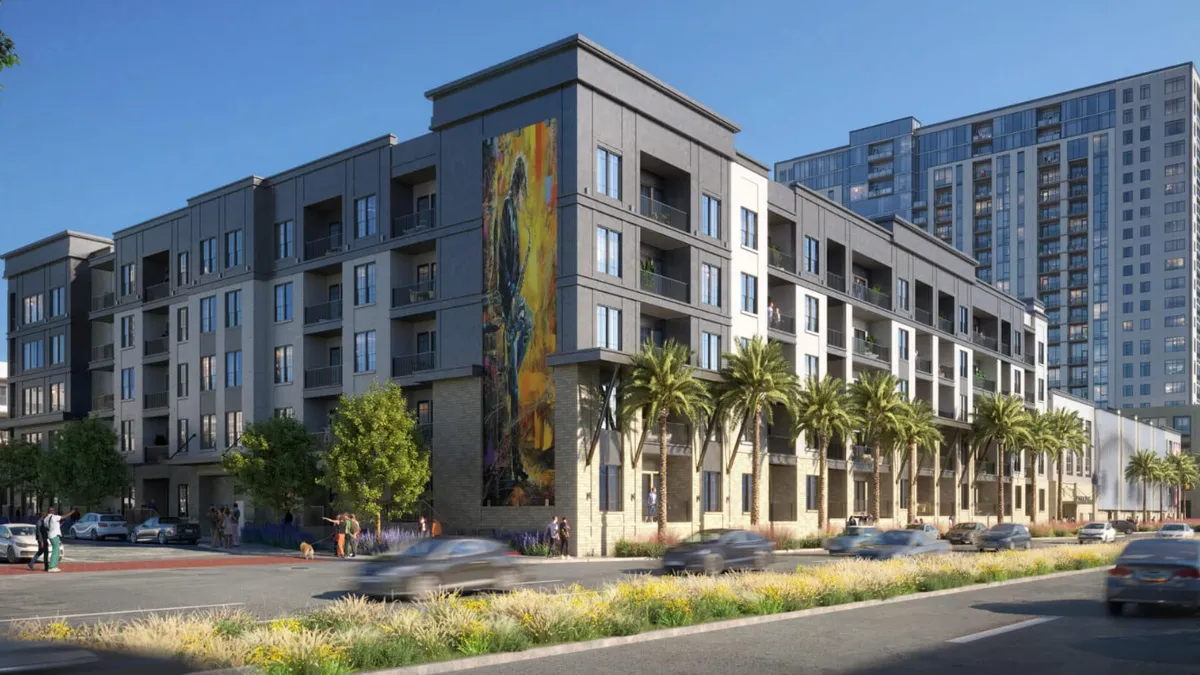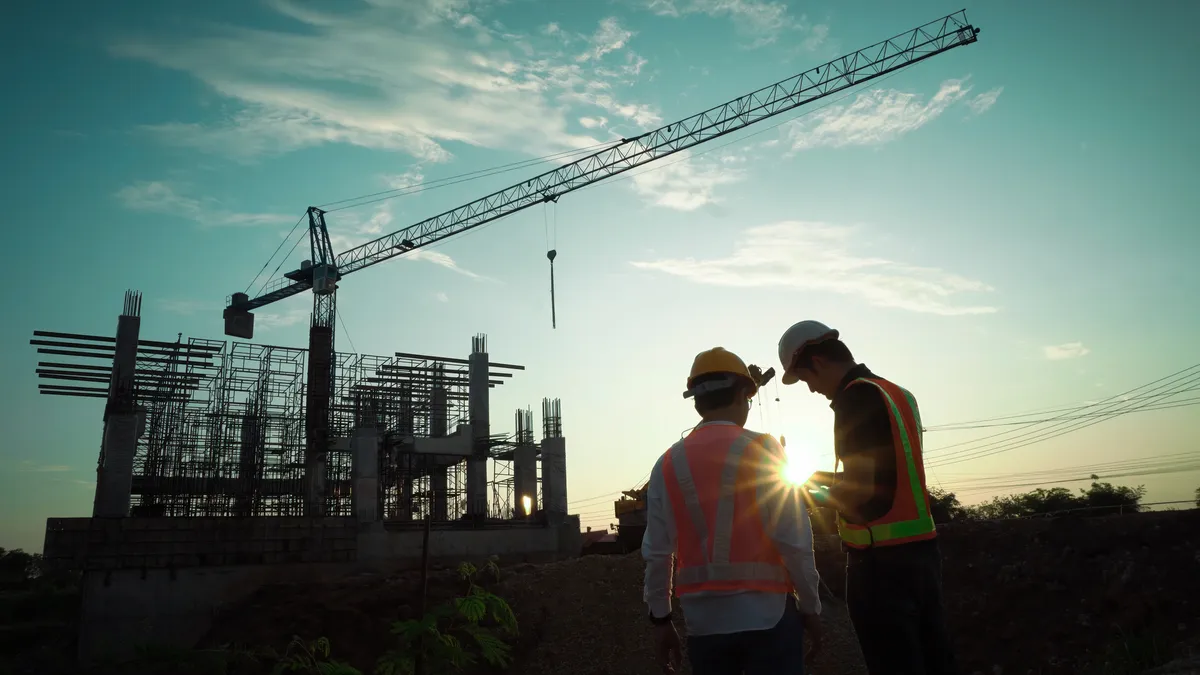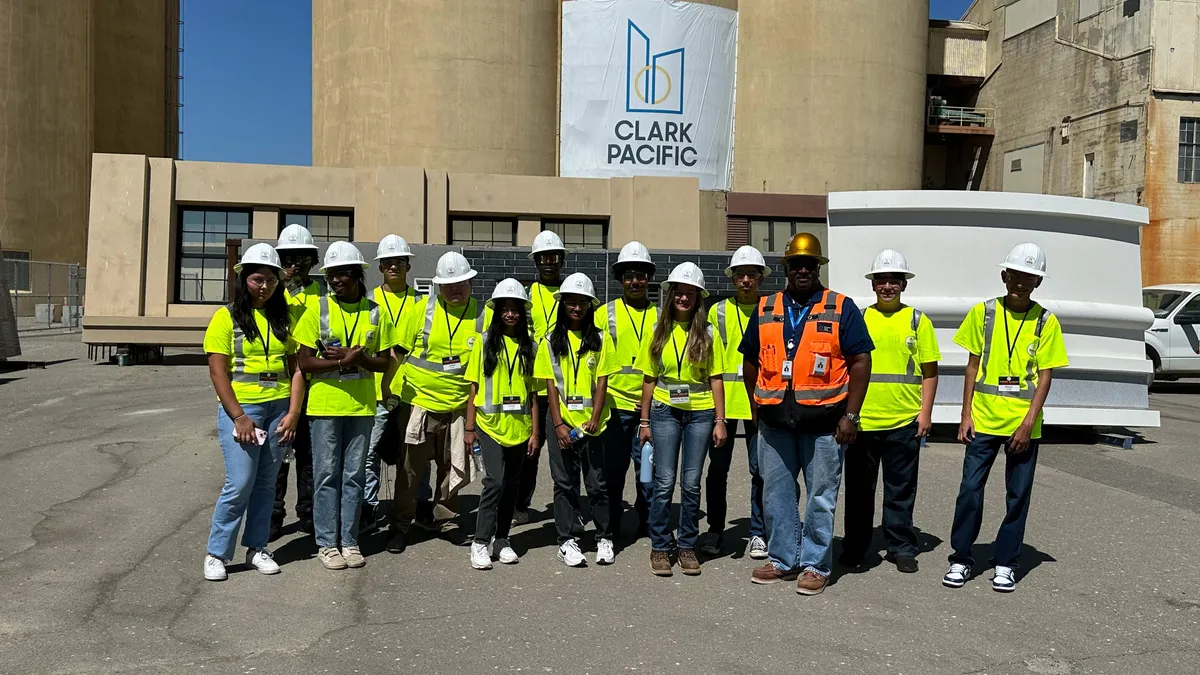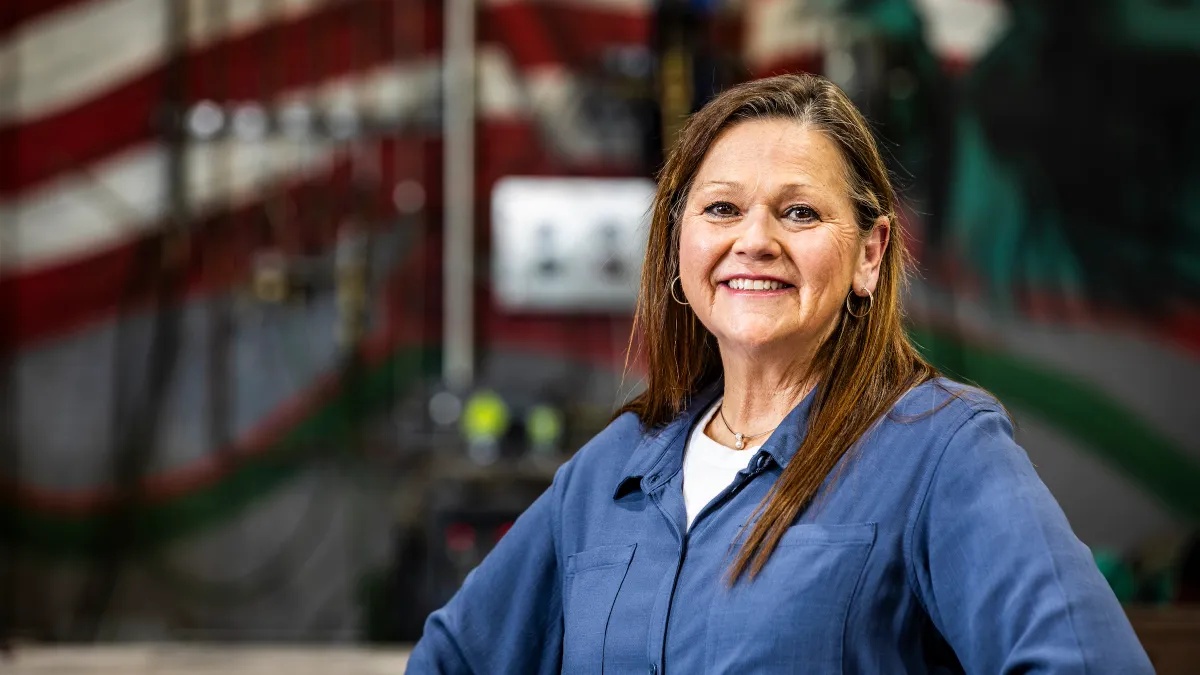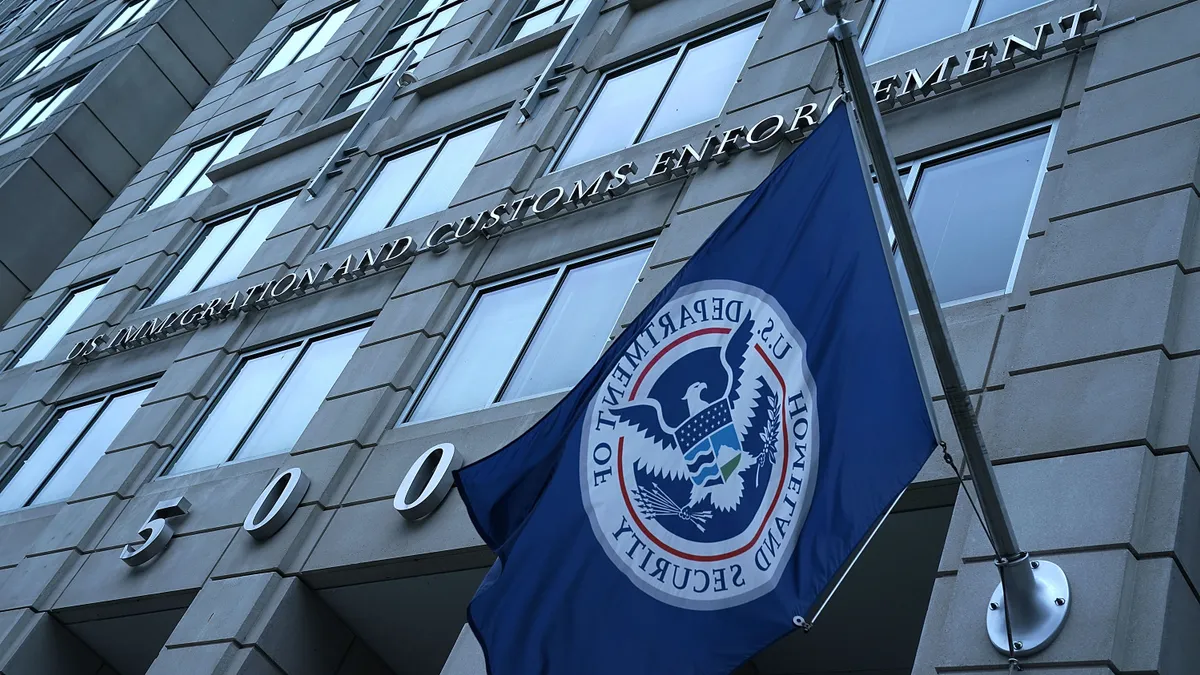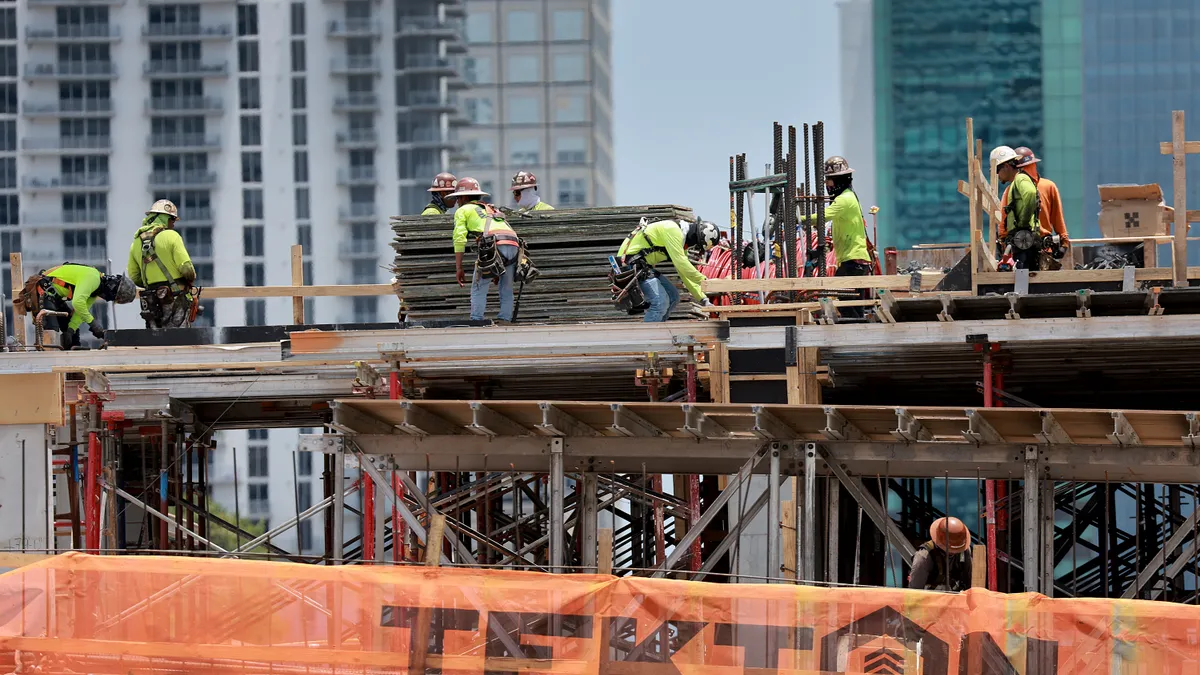This article is part of Construction Dive's 50 States of Construction series, in which we talk with industry leaders about the business conditions in their markets.
The construction industry in Arizona faces a number of challenges. Besides ongoing labor shortages, the state's political climate is shifting from a right-leaning environment to a more moderate outlook, and it may be moving toward the left. Plus, it faces pushback from residents who moved there for the desert beauty but now have major construction projects in their view.
Still, construction is booming.
While many parts of the state are bustling with heavy civil projects like highway construction, the hot spots of commercial activity, said Tom Dunn, president of the Arizona Builders Alliance, are primarily in and around Phoenix and Tucson. There has been a flurry of data center construction in Phoenix, including the two-phase, $450 million project Iron Mountain. The first phase is expected to be delivered this month.
Data centers also are popping up in other areas. About 160 miles northwest of Phoenix near Kingman, Pegasus Group Holdings and Plus Minus Power are building a $3 billion data center that will run on renewable energy sources.
Meanwhile, M.A. Mortenson recently revealed plans to build Arizona's first cross-laminated timber (CLT) Class A office building in Tempe, a Phoenix suburb. Designed by RSP Architects and constructed in association with Urban Development Partners, the Beam on Farmer will feature 15-foot exposed wood ceilings, in addition to beams and columns made of glue-laminated timber (glulam).
Arizona’s large retiree population has, in part, driven the need for new medical facilities. McCarthy Building Cos., for instance, broke ground last month on a new $106 million patient tower, emergency room and main lobby at Banner Boswell Medical Center in Sun City. The first floor is expected to be done in 2020, with customizable upper-floor, patient-room “shells." The 40,000-square-foot emergency room is also scheduled for completion in 2020.
Furthermore, Canadian company Hudbay Minerals recently announced it is moving forward with construction of its $2 billion open-pit copper mine near Tucson. Hudbay said the project will create 2,500 construction jobs; however, it has seen pushback from environmentalists and legal proceedings could delay the mine’s groundbreaking.
Projects like these have contributed to record employment in the state’s construction industry, despite recent data that indicates the cost of building is rising, particularly in the Phoenix area.
This interview has been edited for clarity and brevity.
CONSTRUCTION DIVE: What is the biggest driver of construction in Arizona right now?
TOM DUNN: It’s the economic climate — the pro-business climate that (Republican Gov. Doug Ducey) is leading.
For example, in Southern Arizona, the state gave Caterpillar great incentives to move there and to stay. Now they’re hiring 200 to 300 people to work at Caterpillar’s headquarters, and all the suppliers that want to work with the company are moving there as well. It’s really a brilliant move by the governor to do these things. He was a real salesman in bringing Caterpillar in.
What else is bringing business and new construction to the state?
DUNN: One of the advantages that Arizona has is that it is a right-to-work state. So, another reason people are wanting to invest and develop in Arizona is because the construction costs are lower here than in the rest of the country.
We're approximately 93% non-union construction companies in the state, and public construction projects don’t mandate project labor agreements, which usually increase costs. The state says you can't require project labor agreements.
What about prevailing wages?
DUNN: The state doesn’t require it. Also, the market right now is such that non-union wages are higher than the prevailing wage.
Do you expect that business-friendly environment to hold?
DUNN: Our state is pretty red. Our business climate is so good, “blue-ish” states are losing companies, which come here because it's a better economic climate. But those companies are bringing their employees with them, and many of them have different political views than the people running the state. So this state could flip. It's purple right now, even though you would think Arizona's a red state.
But both sides are a little anti-business on the fringes, so the middle is what we’re looking for.
The data center construction segment is pretty robust right now. Aside from the business incentives you mentioned, what is it about Arizona that attracts the data center industry?
DUNN: We have a great existing infrastructure, relatively inexpensive power in comparison to other parts of the country and lack of natural disasters. ... And we’re a hub for transportation as well.
What has been the impact of all this construction on natural resources like water?
DUNN: Water is always a concern. Most construction has to have a 100-year guarantee of water supply before it can move forward.
What is going on with the $2 billion Rosemont mine project? Construction is supposed to start soon.
DUNN: The leadership in southern Arizona and Pima County is really anti-Rosemont mine, and they are very pro-environment. You want to protect the environment with reasonable laws and regulations, and I think both sides agree on that. But on the left, there’s such strong opposition to Rosemont.
There’s a retirement community that’s up in arms about it because they moved to southern Arizona to get this great view, and they feel like their view might change. There’s also concern it might harm the water around the mine.
Also, the price of copper has dropped since 2008 when Hudbay Minerals was really gung-ho about Rosemont. I think that the pricing of precious metals might help make the determination as to how strenuously they'll fight the county.
Construction of a U.S-Mexico border wall is such a hot political issue. What impact has it had on the state’s construction industry?
DUNN: Most of the construction companies are staying in their own lanes right now unless they're really specialists in that field, so it's not really affecting us. Otherwise, a few years ago, the city of Tucson was trying to create a political test that would make border wall contractors ineligible to do any work for the city, but that hasn’t come to pass.
Finally, are there any issues the Arizona construction industry is likely to face in the future?
DUNN: I can see the marijuana issue coming up.
There’s a push to put the legalization of adult use of marijuana on the national 2020 ballot. How would cannabis legalization impact the construction industry?
DUNN: We're going try to get ahead of it by educating state legislators. We’d rather have a legislative answer than a referendum because, in Arizona, if a law is enacted through a referendum, you cannot change it ever unless it is through another referendum.
Legalization is going to happen eventually, but we want to ensure safety so we don't have men and women getting killed on the job because someone's impaired.


